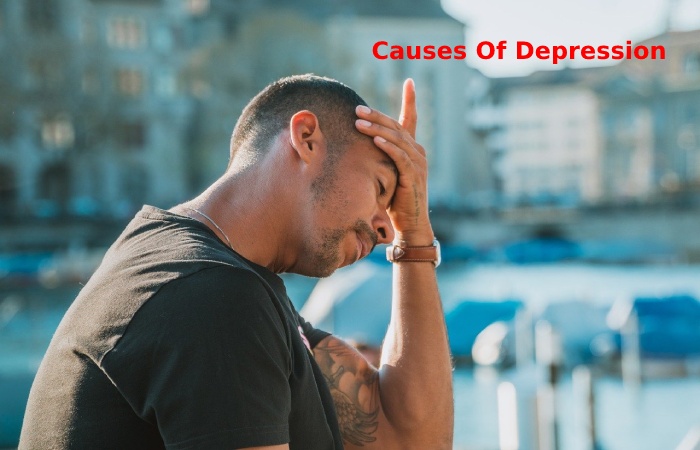Table of Contents
About Depression
Depression is an illness that affects the function of skills or the person’s mood. The depression symptoms you can see are anger issues, sadness, anxiety, and restlessness. This disease will affect the person’s thinking capability, eating, sleeping habits, and memory. You can find this disorder if you feel worthless, sad, or depressed. You may feel it daily with other symptoms like loss of appetite, trouble sleeping, or not being interested in the activities.
Without treatment, it an get poorer and last longer. In simple cases, this can lead to self-harm or death. Luckily, medicines can be very effective in improving the symptoms of it.
How Common Is Depression?
Depression is a common thing in the whole world, as every other person faces this in their lifestyle. About 7% of the American people suffer from depression every year. And about 16% of Americans, from 2 in 6, will face depression in their daily life.
Types Of Depression
Health professionals label types of depression based on symptoms and causes. These episodes often have no apparent cause. In some people, they can stick around much longer than others for no clear reason.
Types Of Depression Include:
Major Depressive Disorder (Mdd): Major Depressive Disorder is severe or complex and will last long for more weeks. These symptoms will interfere with and affect your daily lifestyle.
Bipolar : People with bipolar disorder alternate among low mood periods and highly high energy periods (manic). When the person feels quiet, they may have symptoms like lack of energy, hopelessness, and sadness.
Persistent Depressive Disorder: It is known as dysthymia. Symptoms of PPD are significantly less than those of major depression.
But people experience PDD symptoms for two or more years.
Premenstrual Dysphoric Disorder: This disorder is a typical premenstrual disorder. It disturbs women in the days or weeks before their period.
Causes Of Depression

Several factors can cause depression:
Brain Chemistry: Atypical levels of this can lead to it.
Genetics: If a person suffers from genetics, that means they are depressed.
Life Events: The death of a lovely person causes stress, distressing events, and isolation, which causes high depression.
Medical Conditions: Body aches and an illness can cause depression. A lot of people suffer from it and diseases like cancer and diabetes.
Medications: Few medicines have a side effect of depression. Drugs and alcohol can worsen our condition.
Personality: People who can handle it easily or find it challenging to cope can not move on quickly.
Symptoms Of Depression
it effect your emotions, your mental and physical health. Symptoms of include:
- Feeling very sad, hopeless or worried.
- Not enjoying the things that brought you joy.
- Get irritated or frustrated quickly.
- Eating too much or too little.
- Changes in the amount of sleep.
- trouble on focusing or remembering things.
- Having physical aches like abdominal pain, headaches or sexual dysfunction.
- Consider harming yourself or killing yourself.
How Is Depression Diagnosed?
Anyone can feel sad or depressed from time to time in their daily life. Clinical depression has more overwhelming symptoms, which will be for more than two weeks.
To know you clinically the doctor will ask questions. You can complete a questionnaire and also, provide a family history. The doctors run a few tests or can examine to see if there is any other condition.
How Is Depressive Syndrome Treated?
it can be severe, but it is also treatable. Depression syndrome treatment includes:
Self-Help: Exercising regularly, getting sufficient sleep, and spending time with your family and friends can improve your condition.
Counselling: Counseling involves you to speak to a psychologist. The counselor can help you solve the problems and develop copy skills. Sometimes a short therapy is enough. Other people continue treatment longer.
Alternative Medicine: People with mild or persistent symptoms can improve their well-being with complementary therapy. The therapy includes acupuncture, massage, and biofeedback.
Medications: Medications called antidepressants will help you to change the brain chemistry that causes depression. Antidepressants can take rare weeks to work. Some antidepressants have side effects that often get better with time. If not, contact your provider. Another medicine may work better for you.
Brain Stimulation Therapy: Brain stimulation treatment can help people with major it or with psychosis. Brain stimulation therapy includes transcranial electroconvulsive (ECT) magnetic stimulation (TMS).
